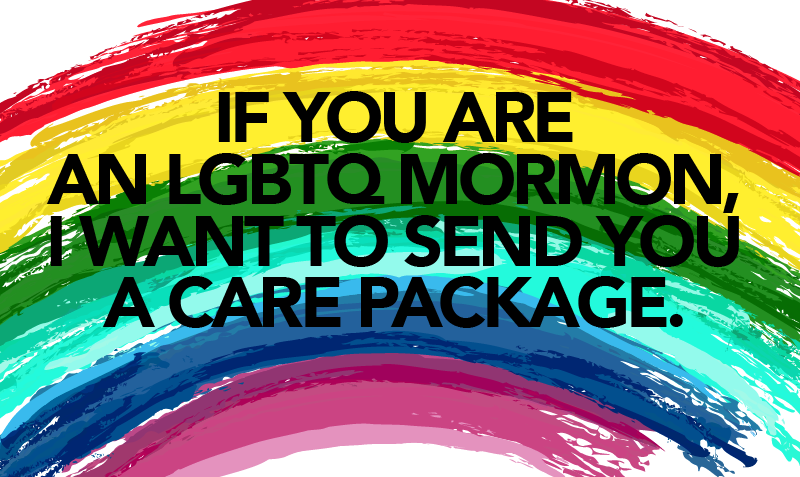I know. People don’t need yet another post about how much they dislike and disagree with the Exclusion Policy. It’s no secret that I’m upset about it, for what it’s doing to the LGBTQ Mormon community, and for what it means for children who want to be baptized at the age of eight.
In the first days of the aftermath, I collected and told the stories of LGBTQ Mormons. I told dozens of stories and there were dozens of stories that were told me to me that I was asked to not tell. Stories about horrific things that happened to these beloved people at the hand of their fellow Mormons.
I don’t have any hope that I can singlehandedly reverse the Exclusion Policy. I’m simply a mouthy broad who has a healthy disrespect for authority and a heart for the heartbroken. Also, since Elder Nelson elevated the Policy to an official Revelation, I’m afraid this is here to stay.
So, while I can’t change the Policy, I can plead with my fellow Mormons to treat our LGBTQ friends and family with much more tenderness and love. They need to know that they are wanted, that they are loved, that we mourn with them during this painful time, and that we pray for a time when there is a clear pathway in the plan of salvation that allows all of God’s children the experience of fulfilling eternal companionship.
One thing we can do is to make the spaces we inhabit safer for everyone.
This is what I’m asking my fellow Mormons to do:
1. Reach out with love and compassion when you see someone hurting. Don’t say “love the sinner, hate the sin” or testify that you believe the Exclusion Policy is from God and if they just commit to celibacy, everything will work out. Sit with them in their hurt and pain and validate. You don’t have to disavow the Exclusion Policy in order to reach out with kindness. Make your friendship a safe space.
2. Consider making an appointment to speak to your bishop and/or stake president about ways your ward or stake can care for LGBTQ members in your area. You can download a list of resources to take with you from here. While your leaders may seem hesitant at first, try to stay in respectful dialogue with your church leaders, so that your ward or stake can become a safer space for LGBTQ Mormons.
3. Make your home a safe space. I’m not asking everyone to post a rainbow flag outside their door. Titles and symbols don’t make you a safe person. I am asking that you work to educate yourself, your family, and your children about ways to show love and kindness to our LGBTQ friends and family. Learn about microaggressions. Learn about preferred pronouns. Learn about allyship. And then incorporate that learning. Act to make things safer in your home.
4. If your spaces aren’t safe for those who are most affected by heterosexism—the trans community—then you need to work harder. It’s more common to create a safe space for gay and lesbian men and women, but if you can hold space for those who experience extremely high rates of violence, suicide, and poverty among all of the LGBTQ community, then you will have created a safe space for the whole community.
5. If you don’t know anyone in person, there are other ways to reach out. I’m sending out care packages to any LGBTQ Mormon (however they define “Mormon”) who needs to feel loved and cared for. I currently need handwritten notes and I’ve created an Amazon Wishlist for some of the more specific items that have been asked for. I am also up for taking your money and maximizing it to do the most good.
The Exclusion Policy is here. I don’t think it’s going anywhere. I am not here to defend it. I believe it has caused and will cause untold pain and suffering. But I also believe that despite the Policy, and maybe even because of it, it is our responsibility to ensure that every person affected never feels the loss of love and kindness we have covenanted to provide, because the spaces we make safe are where Zion is found.





Recent Comments